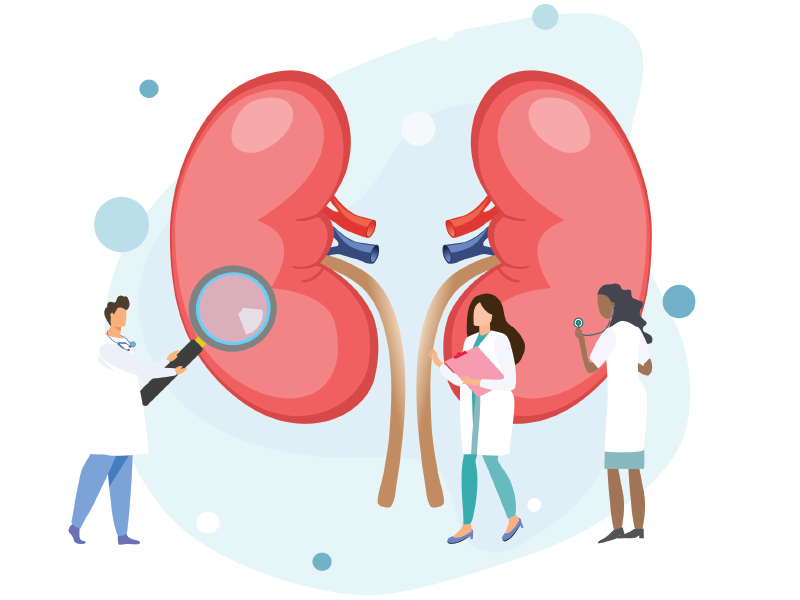Prevent and Manage Chronic Kidney Disease in Type 2 Diabetes
Chronic kidney disease (CKD) is a common concern for individuals living with type 2 diabetes (T2D). Remarkably, roughly half of those with T2D will experience kidney issues at some point in their lives.
Prevention stands as the cornerstone in dealing with CKD. Regular check-ups and targeted treatments can significantly impede its advancement. Here are some effective strategies for preventing and managing CKD in individuals with T2D:
Control of Blood Sugar Levels
An essential method for staving off CKD is maintaining optimal blood sugar levels. The reason behind this lies in the gradual damage that diabetes can inflict on the delicate blood vessels within the kidneys over time.
Your medical professional will establish an A1C target tailored to your needs. For most individuals, maintaining an A1C level below 7 percent is key to safeguarding kidney health.
Maintenance of Healthy Blood Pressure
Another pivotal approach in slowing down or preventing CKD involves the regulation of blood pressure. This may necessitate the utilization of antihypertensive medications and/or lifestyle modifications like reducing salt intake. For the majority of individuals with T2D, maintaining a blood pressure level below 130/80 mmHg is crucial in protecting kidney function.
Prescription Medications for Kidney Protection
Two prominent classes of prescription drugs are frequently utilized in individuals with T2D due to their beneficial effects on kidney health. These medications not only help in reducing blood pressure but also safeguard the kidneys. They encompass angiotensin-converting enzyme inhibitors (ACE) and angiotensin receptor blockers (ARBs).
Research has demonstrated that the progression of CKD can be curtailed by utilizing these medications, irrespective of their blood pressure-lowering impact. Hence, your healthcare provider may recommend one of these medications even if your blood pressure levels are within the normal range.
Discontinuation of Kidney-Harming Medications
Certain medications can be detrimental to kidney health and are classified as nephrotoxic drugs. It is advisable to avoid these medications if you are managing or striving to prevent CKD. Examples of such medications include nonsteroidal anti-inflammatory drugs (NSAIDs) like ibuprofen (Advil) and naproxen (Aleve), certain potent antibiotics, immunomodulators used in autoimmune conditions, and select herbal products. This list is not exhaustive. Consult with your healthcare provider and pharmacist before initiating any new medication, especially an over-the-counter one.
Adjustment of Current Medication Dosages
Some medications can be harmful to the kidneys only at specific doses. Depending on your kidney function, your healthcare provider may reduce the dosage of certain T2D medications.
Promotion of Healthy Lifestyle Habits
Your healthcare provider may also suggest lifestyle alterations to prevent the onset of CKD. These recommendations may include:
- Smoking Cessation: Nicotine consumption can heighten the risk of developing CKD and accelerate its progression.
- Protein Intake Regulation: Decreasing protein intake could aid in slowing the advancement of CKD. Your healthcare provider may advise collaborating with a dietitian to evaluate your current and ideal protein requirements.
Preventing chronic kidney disease demands a comprehensive strategy that integrates lifestyle modifications and prescription interventions.
Have you implemented any of these strategies in your personal health journey? Feel free to share your experiences below!

